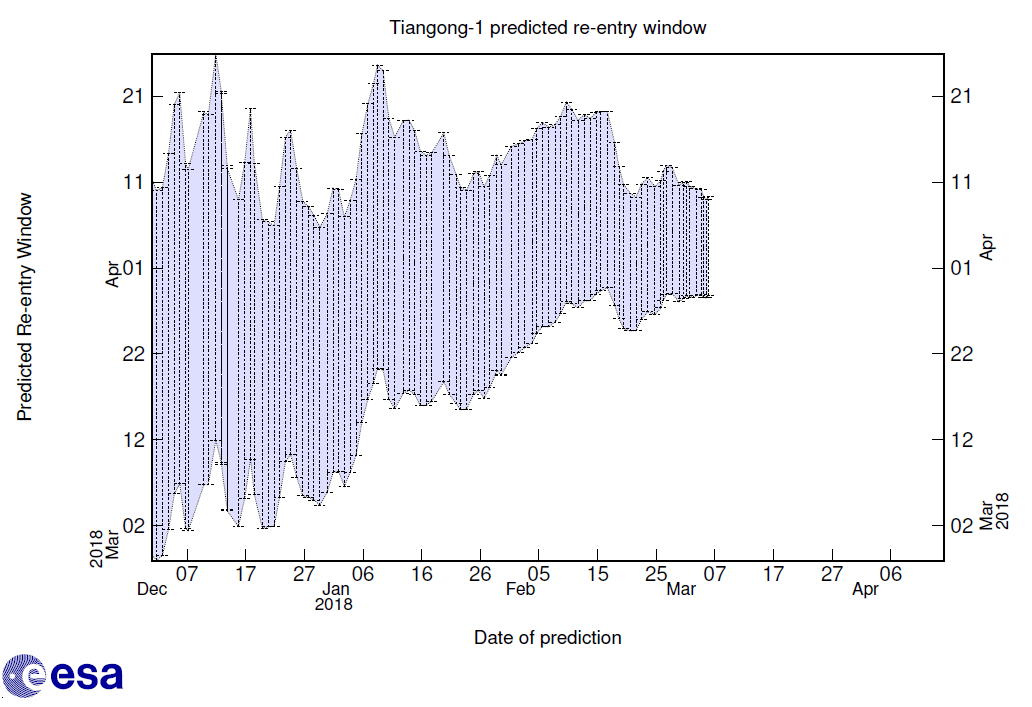It seems asteroids aren't the only bits of space junk we have to worry about plummeting towards Earth's surface. China's first space station, "Tiangong-1," could be re-entering the Earth's atmosphere in early April via an uncontrolled descent.
For the unaware, Tiangong-1 was initially launched back in 2011. At the time, China's space experts hoped, with frequent remote commands, the station's trajectory would lead it to burn through the Earth's atmosphere and harmlessly land somewhere in the South Pacific ocean. While that may not be a pleasant experience for aquatic creatures, such a landing zone would keep humans well out of the danger zone.
At least, that was the plan. Unfortunately, the Chinese unexpectedly lost control of Tiangong-1 in 2016, meaning the station's eventual landing zone has remained a bit of a mystery. The good news is the European Space Agency (ESA) has been keeping an eye on the rogue station's trajectory, dutifully updating the public over time as they've acquired more information about the situation.

To that end, the organization announced today Tiangong-1 will reenter the Earth's atmosphere "anywhere between 43ºN and 43ºS" - coordinates that would include countries like Spain, France, Portugal and Greece, among others.
"...the personal probability of being hit by a piece of debris from the Tiangong-1 is actually 10 million times smaller than the yearly chance of being hit by lightning,"
If you happen to live in one of those countries, the ESA says there's little cause for alarm. "...the personal probability of being hit by a piece of debris from the Tiangong-1 is actually 10 million times smaller than the yearly chance of being hit by lightning," The organization's updated Tiangong-1 FAQ reads. "In the history of spaceflight, no casualties due to falling space debris have ever been confirmed."
It isn't just good luck that has led to zero confirmed human casualties, though. As Tiangong-1 returns to Earth next month, the station will be broken down into smaller, less dangerous pieces as it passes through our planet's atmosphere. As such, any bits that do happen to make it to a crowded area on the ground will hopefully be small enough to avoid causing any real harm.
